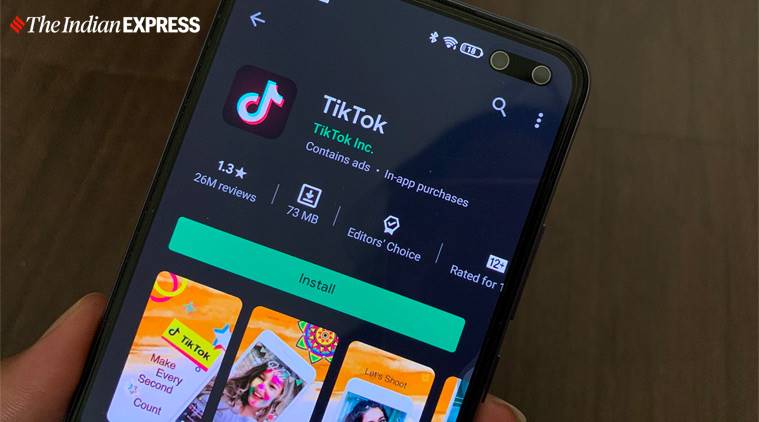SOURCE: ENS

Citing the “emergent nature of threats” from mobile applications, including popular ones of Chinese origin such as TikTok, ShareIt, UCBrowser, Club Factory and CamScanner, the Centre Monday banned 59 apps based on information that they were engaged in activities “prejudicial to sovereignty and integrity”, defence, security and public order.
The move is seen as a retaliatory step amid the tense border standoff between India and China that led to 20 Indian Army personnel being killed on June 15. State-owned telecom companies have since moved to keep Chinese vendors out of their network upgradation tenders.
“The Ministry of Information Technology has received many complaints from various sources, including several reports about misuse of some mobile apps available on Android and iOS platforms for stealing and surreptitiously transmitting users’ data in an unauthorised manner to servers which have locations outside India,” the government said in a statement.
“The compilation of these data, its mining and profiling by elements hostile to national security and defence of India, which ultimately impinges upon the sovereignty and integrity of India, is a matter of very deep and immediate concern, which requires emergency measures,” it said.
“On the basis of these and upon receiving of recent credible inputs that such Apps pose threat to sovereignty and integrity of India, the Government…has decided to disallow the usage of certain Apps, used in both mobile and non-mobile Internet enabled devices,” it said.
An IT Ministry spokesperson said those who have already installed these apps will not receive updates, while internet service providers will be asked to block access to these platforms. The spokesperson said that Google’s Play Store and Apple’s App Store have been directed to remove the apps.
Before the announcement, sources said, a key meeting was held between Home Minister Amit Shah, External Affairs Minister S Jaishankar and Commerce Minister Piyush Goyal.
The move, however, was executed by the IT Ministry’s Indian Computer Emergency Response Team (CERT-In) and approved by the National Cyber Security Coordinator (NCSC) who is a part of the National Security Council Secretariat, sources said.
NCSC head Rajesh Pant told The Indian Express: “We have technical means of finding out where the data is going, what the hidden codes are. Based on these findings and an accumulation of complaints, this decision has been taken in a whole-of-government approach…”
Asked about concerns over Chinese retaliation, he said: “I am not worried about any backlash by anyone.” On some of the applications listed not being “Chinese-owned”, Pant said: “The company may be registered in Singapore but the servers are in China and China is collecting the data.”
Describing the move as a “momentous decision”, an official linked to cyber security in a top government organisation said: “It will impact mobile phones from China as most of these apps are important components in their ecosystem and pricing. These app makers pay commissions to the phone makers.”
Among the apps banned under Section 69A of the Information Technology Act are some of the most downloaded in the country, with Indians making up the largest chunk of many user bases.
For instance, Indians make up the largest base of Tik Tok, which is owned by ByteDance. According to app tracking platform Sensor Tower, the 611 million total downloads from India, including multiple downloads by one user, form almost a third of the video platform’s base.
But India did not feature among its top revenue generators, recording Rs 25 crore for quarter-ended December 2019. In the US, the app has been downloaded 165 million times, with revenues of $86.5 million (over Rs 650 crore) in 2019. China, with nearly 197 million users, contributed $331 million (around Rs 2,500 crore) during the year, according to Sensor Tower.
In a blog post last month, Nikhil Gandhi, India Head – TikTok, had said that the app’s India team had 1,000 employees across eight offices. Last year, TikTok’s parent company Bytedance had announced an investment of $1 billion in its India business over three years.
Likee, which is owned by Singapore-based BIGO, UC Browser (117 million), ShareIt (108 million), and Helo also figured among the top total downloads for Indians last year, according to Sensor Tower.
Other major apps to be banned by the Centre include Alibaba Group’s UCBrowser and UCNews, e-commerce site Club Factory — a local seller base of 30,000 as of December 2019 — and several apps by Xiaomi, one of the highest-selling smartphone brands.
from Indian Defence Research Wing https://ift.tt/2YLi8TX
via IFTTThttp://idrw.org
No comments:
Post a Comment